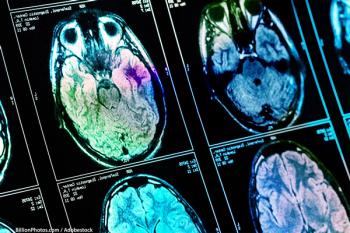
Marker May Predict Immunotherapy Benefit in High-Risk Neuroblastoma
This video examines how a specific combination of KIR/KIR-ligand genotypes in high-risk neuroblastoma patients may be predictive of outcomes when adding dinutuximab to isotretinoin.
In this video, Amy K. Erbe, PhD, of the University of Wisconsin, discusses a new study that found that a specific combination of KIR/KIR-ligand genotypes in high-risk neuroblastoma patients may be predictive of outcomes when adding dinutuximab to isotretinoin treatment.
Previous data from a phase III clinical trial involving 226 high-risk neuroblastoma patients showed that isotretinoin plus the immunotherapy regimen of dinutuximab, sargramostim, and aldesleukin significantly improved event-free and overall survival vs isotretinoin alone. The trial led to the approval of this dinutuximab regimen by the US Food and Drug Administration.
Not all patients respond to the treatment, however. The researchers studied 174 patients from the trial where sufficient DNA had been collected and assessed whether certain genotypes are predictive of response. They found that patients with the KIR2DL2/HLA-C1 and KIR3DL1/HLA-Bw4 genotypes had improved outcomes with the immunotherapy regimen. But in those who did not have these specific genotypes, the overall survival was no different between the two treatment arms.
Erbe noted that the findings still need to be validated before clinical decisions can be made for patients with high-risk neuroblastoma based on the KIR/KIR-ligand genotype.
The results were presented at the 2017 American Association for Cancer Researcher (AACR) Annual Meeting, held April 1–5 in Washington, DC.
Newsletter
Stay up to date on recent advances in the multidisciplinary approach to cancer.






































